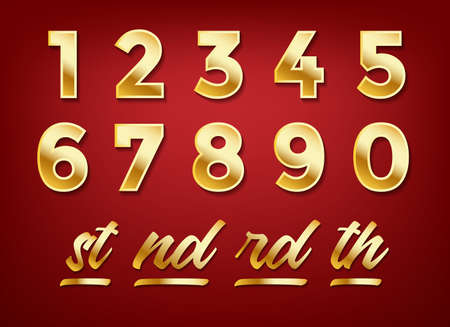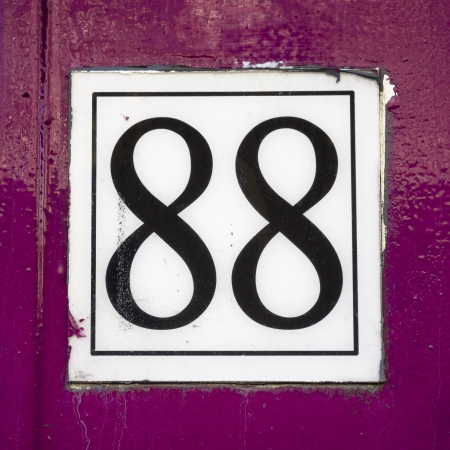Introduction to Tarot in British Culture
The story of tarot reading within British society is a fascinating journey, marked by both mystique and gradual acceptance. Historically, tarot arrived on British shores shrouded in secrecy, often associated with the arcane arts and viewed with a mixture of intrigue and suspicion. In the Victorian era, when spiritualism flourished, tarot cards found their place among parlour games and esoteric gatherings. As time marched on, particularly through the 20th century, attitudes began to shift. What was once relegated to the shadowy fringes slowly edged towards mainstream curiosity. Today, tarot reading has woven itself into the fabric of contemporary British life—not as a mere relic of superstition but as a tool for reflection and conversation. This evolution mirrors broader cultural currents: a nation known for its scepticism now finds room for open-minded exploration. The traditional reserve often associated with British culture meets the modern appetite for personal insight, creating a unique space where trust and doubt coexist, shaping how individuals engage with the ancient art of tarot.
2. Tradition and Scepticism: Navigating Trust
When examining British perspectives on tarot reading, it is essential to appreciate the delicate interplay between tradition and scepticism that characterises the national attitude. The British Isles have long held a fascination for the mystical—tales of druids, ancient stones, and folklore are woven into the cultural fabric. Yet, this affinity for the arcane sits alongside a celebrated rationality; the age of reason and scientific advancement are equally central to British identity.
This duality shapes how tarot is approached: with curiosity, often tinged with caution. For many Britons, tarot reading occupies a liminal space—not entirely dismissed as superstition, yet seldom embraced without reservation. This reflects a broader national temperament that values both open-mindedness and critical thinking.
Superstition vs Rationality: A British Balance
| Aspect | Superstitious Inclination | Rationalist Approach |
|---|---|---|
| Attitude to Tarot | Open to mystical traditions; sees tarot as part of heritage or folk wisdom | Questions accuracy; views readings as entertainment or psychological reflection |
| Typical Behaviour | Might consult tarot at fairs or during life transitions; keeps lucky charms | Prefers evidence-based decision making; seeks logical explanations |
| Social Perception | Slightly private about belief; may share with close friends or family | Cautious not to appear gullible; enjoys light-hearted engagement with tarot |
The Role of Tradition in Building Trust
In many British communities, especially outside major cities, traditional beliefs persist in subtle forms. Here, trust in tarot readers can be rooted in local reputation or longstanding custom. A reader known within their village or town may be respected not just for their skill but for their discretion and empathy—qualities highly valued in British culture.
Scepticism as a Safeguard
At the same time, healthy scepticism is regarded as a virtue. Britons often approach tarot sessions with a reserved manner, quietly weighing what is said against their own judgement. Rather than blind faith or outright dismissal, there exists a measured engagement—a willingness to listen without immediate acceptance. This balance allows individuals to explore tarot’s insights while maintaining personal autonomy and dignity.

3. The Role of Doubt: Healthy Skepticism in Practice
In exploring British perspectives on tarot reading, it becomes clear that doubt is not simply a barrier to belief, but rather a defining feature of the national approach to mystical and esoteric practices. Scepticism, woven into the fabric of British culture, offers a counterbalance to uncritical acceptance, shaping both personal and communal encounters with tarot. Unlike some cultures where spiritual consultation is readily embraced, Britons often approach tarot readings with an air of reserved curiosity, questioning motives, meanings, and methods.
This healthy scepticism is rooted in centuries of rational inquiry and empirical tradition, hallmarks of British intellectual history. It encourages individuals to weigh the symbolic language of tarot cards against their own reasoning and lived experiences. Within this framework, doubt is not dismissed as cynicism but valued as discernment; it prompts seekers to distinguish between genuine insight and fanciful suggestion.
Collectively, this critical stance fosters open dialogue about the purpose and reliability of tarot readings. It allows for respectful engagement while maintaining a protective distance—an attitude reflected in the common British practice of “taking things with a pinch of salt.” Thus, doubt serves as both shield and filter, ensuring that one’s trust in tarot is measured and mindful rather than absolute.
4. Regional Influences and Social Context
The United Kingdom is a tapestry of distinct regions, each with its own sense of identity, history, and tradition. These regional nuances play a significant role in shaping public attitudes towards tarot reading. From the urban sprawl of London to the rugged landscapes of Scotland, local customs and social structures influence both the perception and practice of tarot.
Across England, for example, areas such as Cornwall and Yorkshire are renowned for their deep-rooted folklore and mystical heritage, which can foster a more open-minded acceptance of divinatory practices like tarot. In contrast, regions marked by industrial histories or strong religious traditions may exhibit greater scepticism or discreet engagement with tarot readers.
Class distinction also comes into play. While some might associate tarot with bohemian or countercultural circles, others view it as an accessible form of guidance irrespective of background. In contemporary Britain, it is not uncommon to find tarot readers offering their services at village fairs in the countryside, chic cafes in metropolitan centres, or community halls in suburban districts. This blend of tradition and modernity reflects the evolving role of tarot within British society.
Regional Perspectives on Tarot Reading
| Region | Attitude Towards Tarot | Key Influences |
|---|---|---|
| England (Urban) | Sceptical but curious; growing mainstream interest | Diverse population, media representation |
| England (Rural) | Tradition-tinged openness; private consultation preferred | Local folklore, community reputation |
| Scotland | Mystical association; often linked to Celtic heritage | Cultural revivalism, rural traditions |
| Wales | Cautious interest; mixed views depending on religious influence | Chapel culture vs. ancient customs |
| Northern Ireland | Reserved; occasionally viewed with suspicion due to religious context | Sectarian history, community norms |
The interplay between class and region further colours these attitudes. In some communities, engaging with tarot is considered a harmless diversion or a nod to ancestral wisdom. Elsewhere, it may be regarded as frivolous or even taboo. Yet, there remains a common thread: the British inclination towards privacy and understatement means that many seek out tarot readings quietly, valuing discretion and personal reflection over public display.
5. Tarot, Media, and Modern British Identity
The presence of tarot in modern British society is inextricably linked to its portrayal in popular media, literature, and the ever-evolving cultural landscape. Over the decades, television series, films, and books have both reflected and shaped public perceptions of tarot cards—sometimes casting them as mysterious relics of the occult, other times reimagining them as tools for personal growth or psychological insight. The likes of classic British detective novels or contemporary dramas often feature a tarot reading as a pivotal narrative device, weaving intrigue and a sense of destiny into the plot. Meanwhile, modern British authors and artists have contributed to a renaissance of tarot interpretation, blending traditional symbolism with local imagery and contemporary themes.
Media coverage also plays a crucial role in establishing societal attitudes. Documentaries on British television occasionally explore the history of tarot in the UK, tracing its journey from Victorian parlours to todays diverse communities. Social media platforms further democratise access to tarot by enabling readers from all backgrounds to share their interpretations and experiences. This broadens the conversation well beyond the stereotypical fortune-teller trope; it opens space for nuanced discussions about intuition, mental health, and self-reflection within a distinctly British context.
In these ways, modern interpretations of tarot often mirror Britain’s own negotiation with tradition and change. While some view tarot through a sceptical lens, others embrace it as part of a broader exploration of identity and meaning—a reflection of the nation’s eclectic spirit. Whether depicted in gritty London streets or quiet countryside retreats, tarot’s presence in contemporary British culture is both influenced by and influential upon ongoing debates about trust, belief, and self-understanding.
6. Personal Anecdotes and Contemporary Experiences
Across the United Kingdom, tarot reading has woven itself into the fabric of personal experience, often in ways as varied as the people who seek its insights. From bustling London boroughs to quiet villages in the Lake District, real-life stories from Britons illuminate the rich diversity of attitudes towards tarot. For instance, one London professional recalls her first encounter with a tarot reader at a local market in Camden: “I approached it with scepticism, but left with a sense of comfort—whether from the cards or just being listened to, I’m still not sure.” Her story echoes the sentiments of many who, while not fully convinced of tarot’s mystical powers, find value in its ability to prompt reflection and conversation.
Meanwhile, in Manchester, a young university student describes how tarot became a part of her social circle: “We’d gather on Friday nights, lay out the cards, and use them as prompts to talk about our hopes and worries. It wasn’t so much about believing in fate as it was about understanding each other better.” Such experiences underscore that for some Britons, tarot serves less as a tool for divination and more as a catalyst for self-exploration and community bonding.
Not all reflections are positive or neutral; doubt remains a prevailing theme. An older gentleman from Edinburgh shared his perspective: “My mother warned me against ‘dabbling’ in things best left alone. Even now, I watch these trends with suspicion.” His wariness highlights an enduring tension within British culture between open-minded curiosity and traditional caution—a reminder that trust in tarot is never universal nor uniform.
On the Isle of Wight, a retired nurse recounts how she turned to tarot during times of uncertainty: “The cards didn’t give me answers, but they helped me frame my questions differently. That made all the difference.” Her experience reflects another British trait—pragmatism—and demonstrates how even those unsure of tarot’s veracity may find practical value in its rituals.
Together, these anecdotes present a mosaic of contemporary British engagement with tarot: sometimes hopeful, often circumspect, and always shaped by individual backgrounds and beliefs. In every corner of the UK, personal stories reveal that whether embraced or doubted, tarot continues to inspire reflection on life’s uncertainties—true to both the spirit of inquiry and reserve that characterise British culture.
7. Conclusion: Reflection and Future Trends
As we draw this exploration to a close, it becomes evident that the British relationship with tarot is as layered and nuanced as the culture itself. Throughout history, perspectives on tarot in Britain have been shaped by trust and doubt in equal measure, reflecting a broader national disposition towards both tradition and scepticism. On one hand, there exists a deep-rooted respect for the mystical and the arcane—a curiosity inherited from centuries of folklore, spiritualism, and philosophical enquiry. On the other hand, British pragmatism and rationalism often temper this curiosity with critical thinking and healthy doubt. This interplay gives rise to a uniquely British approach to tarot: one that values personal interpretation and reflection over blind faith or rigid dogma.
Key themes emerging from our discussion include the importance of cultural context in shaping attitudes towards divination, the role of individual belief in guiding how tarot is used or dismissed, and the ongoing dialogue between old traditions and contemporary sensibilities. As Britain continues to evolve—embracing greater diversity while honouring its heritage—the future of tarot appears set for further transformation. The digital age has already introduced new forms of engagement through online readings and virtual communities, broadening accessibility while inviting fresh scrutiny. Meanwhile, younger generations are bringing their own perspectives, blending tarot with wellness practices, psychological insight, and creative expression.
Looking ahead, it seems likely that tarot will remain a mirror for British society—reflecting not only personal hopes and uncertainties but also wider cultural shifts. Whether approached as a tool for introspection or simply as an engaging tradition, tarot’s enduring appeal lies in its capacity to invite thoughtful questioning rather than provide definitive answers. As British culture negotiates the balance between trust and doubt, it will continue to shape—and be shaped by—the evolving practice of tarot reading.


